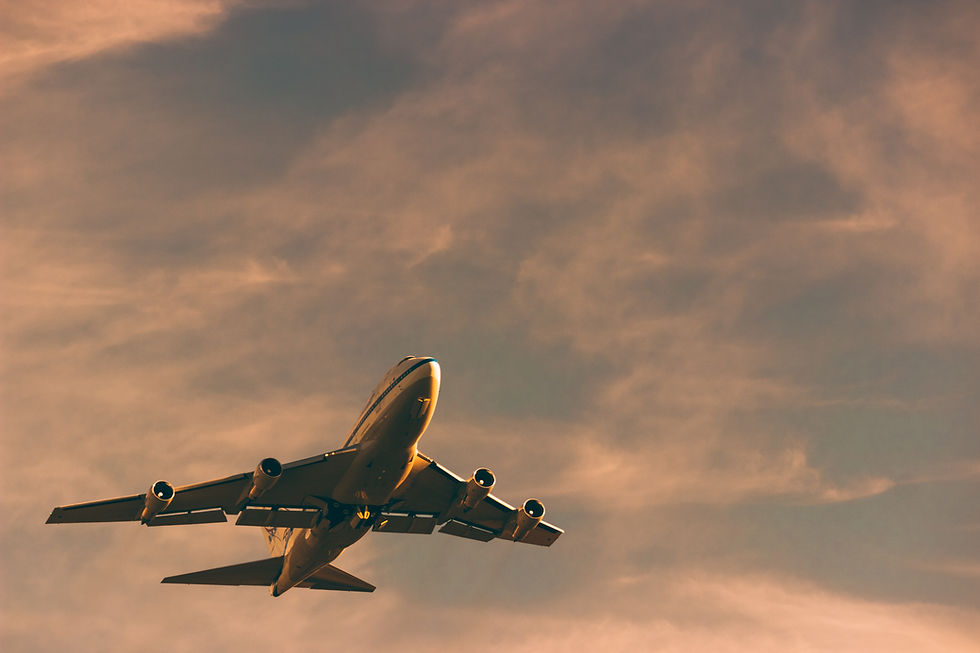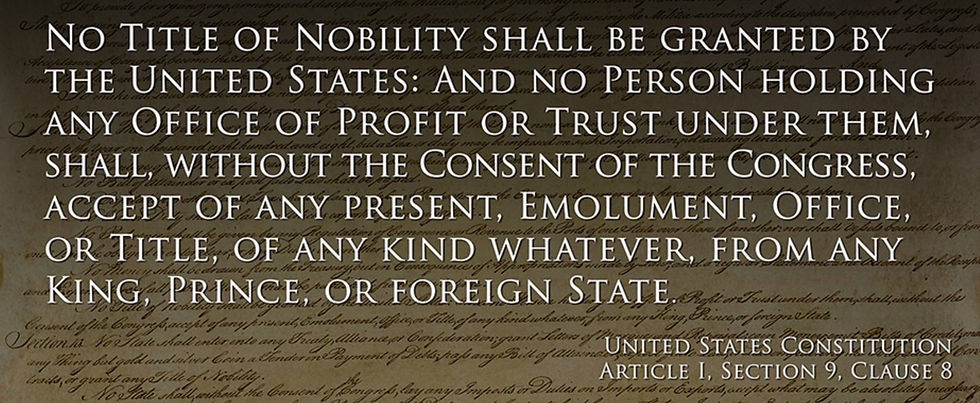From Teapot Dome to Tarmac Deals: Foreign Gifts, Presidential Power, and the Return of Corruption Concerns
- Staff Writer
- Jun 30, 2025
- 2 min read
When news broke that the United States had accepted a gifted Boeing 747 from Qatar to serve as the next Air Force One for President Trump, it raised immediate questions about constitutionality, influence, and transparency. The official line is that it is a cost-saving gesture. But history offers a sobering precedent: the Teapot Dome scandal.

A century ago, Secretary of the Interior Albert Fall secretly leased valuable federal oil reserves to private companies in exchange for personal bribes. The scandal rocked the Harding administration, exposed deep corruption, and became the gold standard for governmental misconduct until the Watergate era. The Qatari jet may not involve suitcases of cash, but the underlying themes are strikingly familiar.
Foreign Influence and Domestic Power
In Teapot Dome, the bribes came from American oil tycoons. In 2025, the gift comes from a foreign government with ongoing strategic interests in U.S. military cooperation and arms deals. The fact that this aircraft may serve as the literal vehicle for presidential power only heightens concerns.
The Foreign Emoluments Clause of the Constitution bars U.S. officials from accepting gifts from foreign states without congressional consent. In this case, Congress has taken no formal vote. The plane is sitting in a Texas maintenance facility. Planning for its conversion is already underway. And the justification, as offered by Trump, is that the gift was to the Air Force rather than to him personally.

But as with Teapot Dome, where paperwork and legal cover were used to mask personal gain, the structure of the deal does not erase its ethical implications. Accepting a strategic asset from a foreign partner, one that must be retrofitted at taxpayer expense and could remain in use well beyond a single term, raises exactly the kind of concerns the Constitution was designed to prevent.
The Cost of "Free"
Supporters argue this move saves money. But experts suggest the modifications could cost hundreds of millions of dollars and delay readiness until the 2030s, well after Boeing’s custom planes are expected to be completed. That is not savings. That is politics dressed as procurement.
Teapot Dome involved secret leases. This case involves obscure aircraft transfers and undisclosed contractor arrangements. In both instances, transparency trails executive decision-making. Once again, Congress is being asked to react after the fact.
More Than Optics
This is not just about optics or even dollars. It is about precedent. If a president can accept a strategic, high-visibility asset from a foreign partner without open congressional debate, what else can be accepted? A cyber platform? An arms system? A port?
Justice Warran once wrote, "a democracy is effective only if the people have faith in those who govern, and that faith is bound to be shattered when high officials and their appointees engage in activities which arouse suspicions of malfeasance and corruption." That principle still holds. Teapot Dome damaged the public’s trust in government for a generation. If today’s leaders fail to learn from that history, the consequences may not only be repeated in headlines but also in the quiet erosion of democratic norms.




Comments